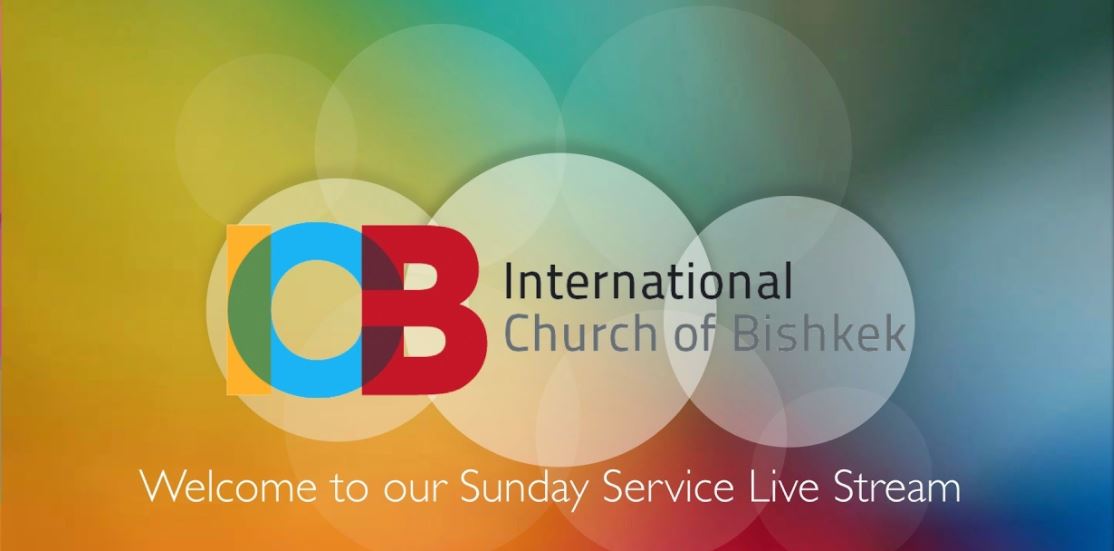[His] delight is in the law of the Lord. Psalm 1:2 NIV Dear ICB family,
I'm not going to lie to you. For a long time I recoiled slightly when the psalmist talked about how much he loved the law or delighted in the law or found it to be sweeter than honey to his mouth. I hear the word law and my mind goes to Leviticus: "And all the fat of the bull of the sin offering he shall remove from it, the fat that covers the entrails and all the fat that is on the entrails and the two kidneys with the fat that is on them at the loins and the long lobe of the liver that he shall remove with the kidneys…; and the priest shall burn them on the altar of burnt offering. But the skin of the bull and all its flesh, with its head, its legs, its entrails, and its dung—all the rest of the bull—he shall carry outside the camp to a clean place, to the ash heap, and shall burn it up on a fire of wood" (a law concerning the procedures for properly making a sin offering, Lev. 4:8–12 ESV). "These are the living things that you may eat among all the animals that are on the earth. Whatever parts the hoof and is cloven-footed and chews the cud, among the animals, you may eat" (a law regarding what foods the Israelites could eat, Lev. 11:2). "And if there is a white swelling in the skin that has turned the hair white, and there is raw flesh in the swelling, it is a chronic leprous disease in the skin of his body, and the priest shall pronounce him unclean" (a law regarding the treatment of leprosy, Lev. 13:9). These and many other commandments like them were all a part of "the law" that the psalmists constantly praise. I admit I find within myself little affection toward such ordinances. These aren't the Bible verses that people embroider and hang on their walls. These verses don't get used at weddings or funerals and they're never claimed as a person's life verse. These laws seem so foreign and if I'm honest, a little off-putting. So what do the psalmists see that I obviously miss? I think they understood that the law is pointing somewhere. You see, the law reveals to us the character of God. When we read laws about leaving the corners of one's fields unharvested so that the poor have something to glean, we see the compassion of God toward all people, even those considered to be at the bottom of society. When we read laws about clean and unclean animals or what makes a person clean or unclean, we get a glimpse of God's complete separateness from everything common. He is completely pure and undefiled by any contaminated thing whatsoever, and that is the unbelievably high standard to which he calls his people. When we read laws about which internal organs to burn on the altar in the tabernacle and which parts of the bull are to be taken outside the camp to be burned, we begin to understand the true cost of a person's sin—it resulted in the death of an animal so that the person might live—and we begin to grasp how horrible the punishment of sin is, namely, burning up by fire. When seen this way, I can feel a stirring of love for the law of God. Even Leviticus. I remain thankful we today are not bound by the covenant that God made with Israel, yet I love the high and holy and loving and compassionate and pure and gracious and just and righteous God that shines through every single one of the laws that he handed down to Moses on Sinai, and in that way, I, too, can say with the psalmists that I delight his law. May God remove from your eyes and from mine "the veil" that keeps us from seeing "the glory of the Lord" in "the old covenant" (see 2 Corinthians 3:12–18). Eric
0 Comments
Click on the picture above to watch the service on our YouTube Channel. Psalm 1Are you truly happy? The author of Psalm 1 shows us where we can find true happiness.
Questions for personal reflection and/or for group discussion:
Now when they heard these things they were enraged, and they ground their teeth at him.... Then they cast him out of the city and stoned him. Acts 7:54, 58 ESV Dear ICB family,
It might be hard for us today to understand how it was that what Stephen said in Acts 7 resulted in getting him stoned. OK, so he called them "stiff-necked." We could understand some nasty comments being posted on his Facebook wall and his not getting inviting to the next social event in Jerusalem, but killed? Wasn't he basically just retelling Israel's history? Step into the mindset of a first century Jew for a moment and try to understand why, after Stephen's speech to the Jewish council of elders, they "were enraged," "ground their teeth at him," and ultimately "cast him out of the city and stoned him" (Acts 7:54, 58 ESV). Here are the charges upon which Stephen was initially brought before the Sanhedrin, Israel's high council of elders: "this man never ceases to speak words against this holy place [the temple] and the law, for we have heard him say that this Jesus of Nazareth will destroy this place and will change the customs that Moses delivered to us" (Acts 6:13–14). Now in light of those accusations, consider the following details that Stephen chose to include in his retelling of Israel's history and see if you can't spot what made the Sanhedrin mad enough to kill him:
In short, Stephen while commenting on the very things that the Jews held to be most sacred, he was coming to some radically different conclusions than those held by the vast majority of Israelites at the time. Stephen claimed that God was able to speak to his people and dwell with them in places as diverse as Mesopotamia, Egypt, and Midian. He dared to imply that the temple, as meaningful as it was in generations past, had become obsolete and that the Jews no longer had a monopoly on God, so to speak. God could even make a mountain in pagan Midian holy if he wanted to come down there. He pointed out that both Joseph and Moses (both of whom were decisively changed as a result of the influence of the Egyptians of all people!) were rejected and persecuted by Israel's forefathers, a pattern that goes back all the way to the original patriarchs. Slavery and exile were the things ultimately promised for Israel's disobedience and idol worship, and this current generation of Jews was headed for the same fate as their ancestors for following in ancient Israel's footsteps. And here was the Sanhedrin, the council of Jewish elders, who were acting exactly like their forefathers by disobeying the law, the very thing they prided themselves for keeping. In this light, then, it's a little easier to understand why the council members "were enraged," "ground their teeth at him," and ultimately "cast him out of the city and stoned him" (54, 57). The truths for which Stephen died are truths still worth dying for: We don't come to a place to meet with God. We come to a person, the risen Savior and King, Jesus Christ. God isn't merely with us when we're in a particular place. He's with us wherever we go. We don't submit ourselves to Old Testament law codes in order to be found righteous before God. We trust in the "the Righteous One" who made the way for God to be both just and the justified of those who have faith in him, a way that was quite "apart from the law" (see Romans 3:21–26). Not a single group of people on the face of the earth has any privileged position in securing God's favor. The foot of the cross is level ground for every last man, woman, and child ever born at any period in history. Separation from God in exile—and ultimately eternal separation from him in never-ending exile—is the punishment for those who reject Jesus. Enjoying God's presence demands embracing his Son. May we live, and if necessary die, for these truths, the truths for which Stephen died. In awe at the hope that is ours, Eric Click on the image above to watch the service on our YouTube channel. Acts 7For the Jews, place was very important. Israel was where Europe, Africa, and Asia met. At the center of Israel was Jerusalem, and at the center of Jerusalem was the temple. That is where God met with man.
By evoking Abraham, Joseph, and Moses, Stephen shows that God can speak to his people while they're in Mesopotamia, Egypt, or the land of Midian. When the house of God becomes an idol, God will burn it down. Jesus was the dwelling place of God, and now we as living stones make up the true temple of God. Questions for personal reflection and/or group discussion
It is not right that we should give up preaching the word of God to serve tables. Acts 6:2 ESV Dear ICB family,
It is easy to read a heavy dose of haughty superiority into the words "It is not right that we should give up preaching the word of God to serve tables" (Acts 6:2 ESV). However, in light of the apostles' story through the gospels and up to this point in the book of Acts, I can't believe arrogance had anything to do with it. First of all, Jesus had given those whom he appointed apostles a clear task. They were to serve as witnesses to the world of Christ's suffering and resurrection and of the fact that now repentance and forgiveness of sins should be proclaimed in Jesus' name to the nations. (See Luke 24:46–49 and Acts 1:8.) As Acts opens, we see that one of the principle ways that the apostles testified to what they had witnessed firsthand was through the public and private proclamation of the central message of Jesus Christ (Acts 5:42). It was out of devotion to the task entrusted to them by their Lord and Master, not out of arrogance, that they would not let even good things like serving tables get in the way. Second, these men had suffered in order to be faithful to the charge that Jesus had given to them. A group who would leave the religious council having just been beaten and "[rejoice] that they were counted worthy to suffer dishonor for the name" (Acts 5:41) does not strike me as a group of men on a power trip. For these and other reasons, I cannot imagine even an ounce of self-exalting egotism at work in the sentence "It is not right that we should give up preaching the word of God to serve tables." Perhaps other men would have uttered that sentence with an air of superiority. No doubt that people even today use the sentence to justify their not pulling up their shirt sleeves, stooping down from their lofty perches, and getting their hands dirty. But not these men. No way. Do you know the task to which God has called you? We will one day be required to give an account of how faithful we were with what our Master placed in our hands (see Matthew 25:14–30 and Luke 19:11–27). Are you devoted to that task with all your might, such that not even good opportunities hinder your faithfulness to your central charge? That is the lesson of the apostles' words in Acts 6:2. And are you so confident in the work your Master has given you and so zealous to carry it out that you, with all humility, would say when presented with even a good opportunity to serve, "It is not right that I should give up ______ even to ______"? The apostles' single-heartedness is worthy of imitation. Let's join them, starting this week, in not letting even good things get in the way of the tasks to which our Master will one day call us to give an account. Praying for single-heartedness along with you, Eric Click on the picture above to watch the the service on our YouTube channel. acts 6:1-15Two ways in which God demonstrated the wisdom of the Holy Spirit
What lessons can we learn for today?
Questions for individual reflection and/or group discussion
'Go, stand in the temple courts,' he said, 'and tell the people all about this new life.' Acts 5:20 NIV Dear ICB family,
In the book of Acts the topic of the death and resurrection of Jesus was at the heart of the apostles' preaching and teaching. Before ascending to heaven, Jesus told his disciples that they would be witnesses of the fact that the Christ had suffered, that he had risen on the third day, and that now repentance and forgiveness of sins would be proclaimed in his name to all nations (Luke 24:45-47). The event of Jesus' death and resurrection was central to Peter's two sermons given in Acts (Acts 2:14–39; 3:11–26). It was what Peter proclaimed to the priests and Sadducees when hauled in before them (Acts 4:10). It was the climax of Stephen's sermon that got him stoned (Acts 7:51-53). It was the central theme that Philip explained to the Ethiopian eunuch from Isaiah 53. It was how Peter walked through the gospel message with Cornelius and the gentiles gathered with him (Acts 10:39-41). Paul went so far as to say that he "decided to know nothing among [the Corinthians] except Jesus Christ and him crucified" (1 Corinthians 2:2 ESV), and certainly even a casual reading of his letters bear that out. It is a peculiar message that we offer to the world. Jesus Christ crucified is "a stumbling block to Jews and folly to Gentiles" (1 Corinthians 1:23). Of course it is. We proclaim that the doorway to life is death, that new life only begins with the passing away of this old nature, and that the only way for a man to save his life is to lose it. Half of the good news of the message of new life is that a physical seed planted in the earth "does not come to life unless it dies" (1 Corinthians 15:36). The other half of the good news of the message of new life is that once a seed does die, "what is raised is imperishable. It is sown [and dies] in dishonor; it is raised in glory. It is sown [and dies] in weakness; it is raised in power. It is sown [and dies] a natural body; it is raised a spiritual body" (1 Corinthians 15:42-44). God wants nothing less than for you to possess this "new life" that the first apostles boldly proclaimed. However, just like Jesus himself only inherited his resurrected life after he had died, so, too, must we die to experience a new life like his. And there's just no way around it: Dying hurts. We cringe and recoil at the thought of it. Experiencing divine-like patience requires the death of our impatience. Living free from envy and rivalry and anger requires the putting to death of the assertion of our rights and earthly desires. Walking down the life-giving path called humility requires us to slay our self-centeredness and self-righteousness. Being conformed to the image of the Son first requires the crucifixion of our old nature on a cross not different from his own. And lest we forget, the call to take up our cross is a daily call (Luke 9:23). Romans 8:13 reminds us that "if you live [habitual, ongoing, present tense] according to the flesh, you will die, but if by the Spirit you put to death [habitual, ongoing, present tense] the deeds of the body, you will live." But there's new life awaiting those who willingly stretch out their hands and let the executioner drive his nails. It is the hope of this new life that makes the dying worth it. Every time you die to self, conquer your bitterness, let the ax fall across the neck of your pride, or sever any other sin that binds you, don't weep! That's life getting ready to push its imperishable head through the soil of your heart! And this is the central message we proclaim, right along with the apostles in Acts and the rest of the New Testament. We call people to new life through the door of death. Oh, that more people might come to walk through that door. Eric Click on the picture above to view the service on our YouTube channel. Acts 5:12-42TWO RESPONSES TO THIS TEXT
First, we marvel at the miracles (an upward response of worship).
Second, we find courage (an outward response).
Question for personal reflection and/or group discussion:
|
Archives
May 2024
Categories
All
|






 RSS Feed
RSS Feed